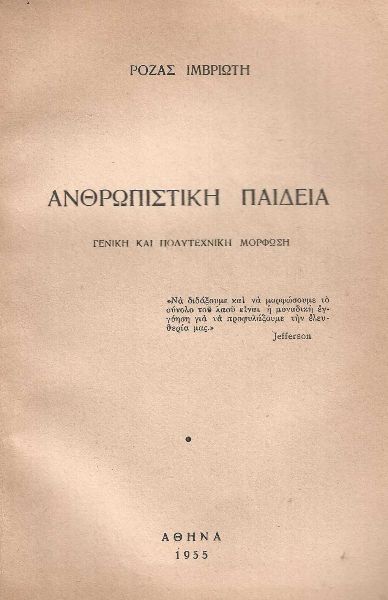Bibliography
Vournas Tasos, Spondi sti soro tis Rosa Imvrioti, I ypodeigmatiki paidagogos kai agonistria [A libation to her body. Rosa Imvrioti, the exemplary educator and fighter], Avgi, 20.9.1977
Imvrioti Rosa, “I morfi tou Glinou” [The figure of Glinos], Avgi, 25-27.12.1952
– “Mia prototipi erevna. Otan imoun 16 chronon” [An original research. When I was 16 years old], Avgi, 26.8.1956, p. 7
– “To Frontistirio tis Tyrnas” [The Training Centre of Tyrna], Epitheorisi Tehnis, vol. 87-88, March-April 1962, p. 315-316
– “Michalis Papamavros”, Epitheorisi Tehnis, vol. 101, May 1963, p. 474-477
– To Katigoro ton neon [The “J’ acusse” of the youth], Athens 1972
– Paideia kai Koinonia [Education and Society], Athens 1980
Theodorou Victoria (ed.), Stratopeda Ginekon [Women’s Camps], Athens 1975
Charissi Antonia, “Oi protes prospatheies tou Neoellinikou kratous gia tin eisagogi tis Eidikis Ekpaidefsis: I simvoli tis Rosas Imvrioti” [The first efforts of the Modern Greek state for the introduction of Special Education: the contribution of Rosa Imvrioti], PhD Thesis, University of West Macedonia, Faculty of Education, Department of Primary Education, Florina 2012
Chronopoulou Chrysanthi, “Paidagogiki kai ekpaideftiki drasi tis Rosas Imvrioti” [Pedagogical and educational activity of Rosa Imvrioti], PhD Thesis, National and Kapodistrian University of Athens, Faculty of Philosophy, Pedagogy, and Psychology, Athens 2002

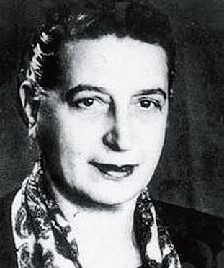
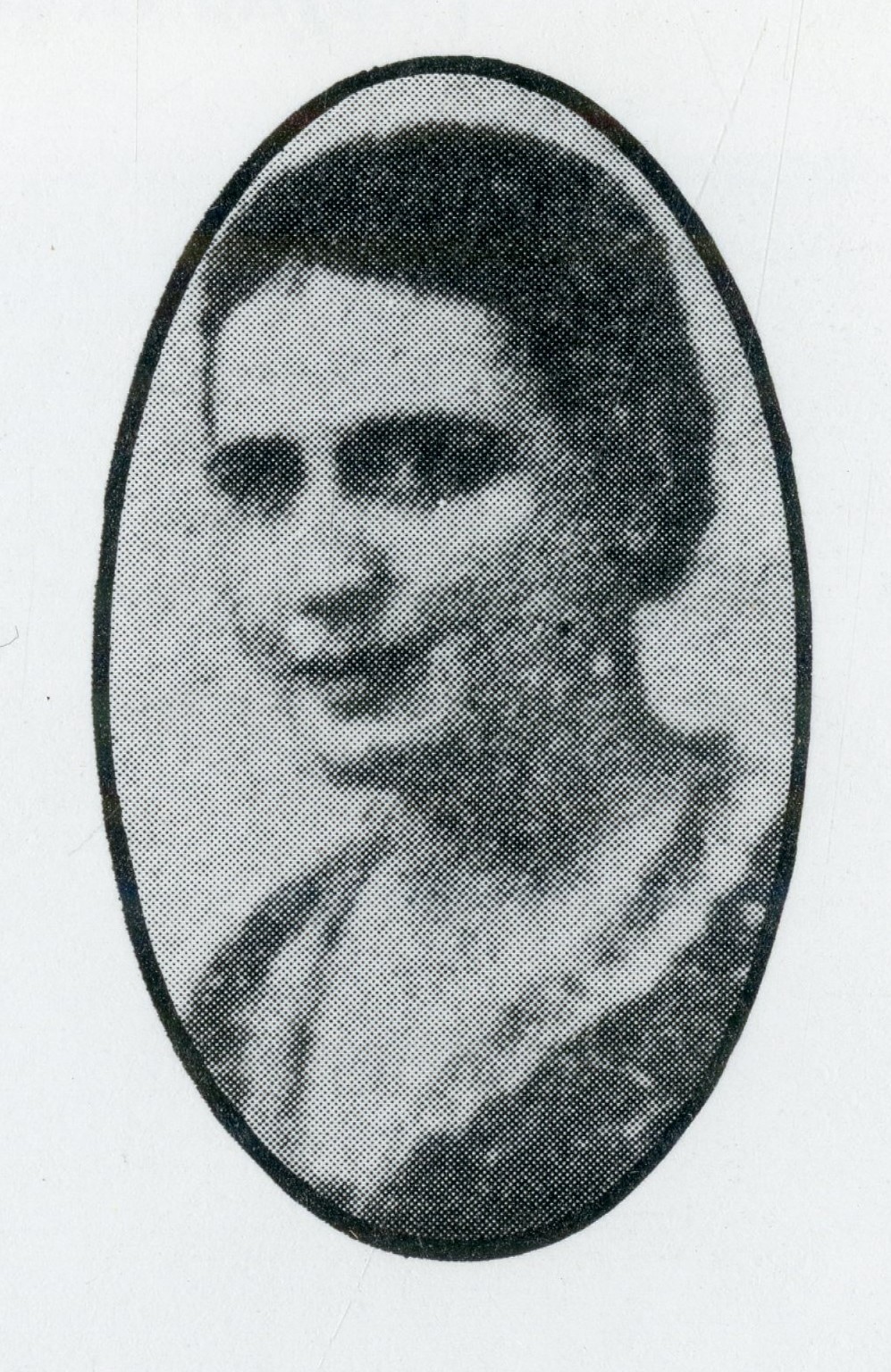

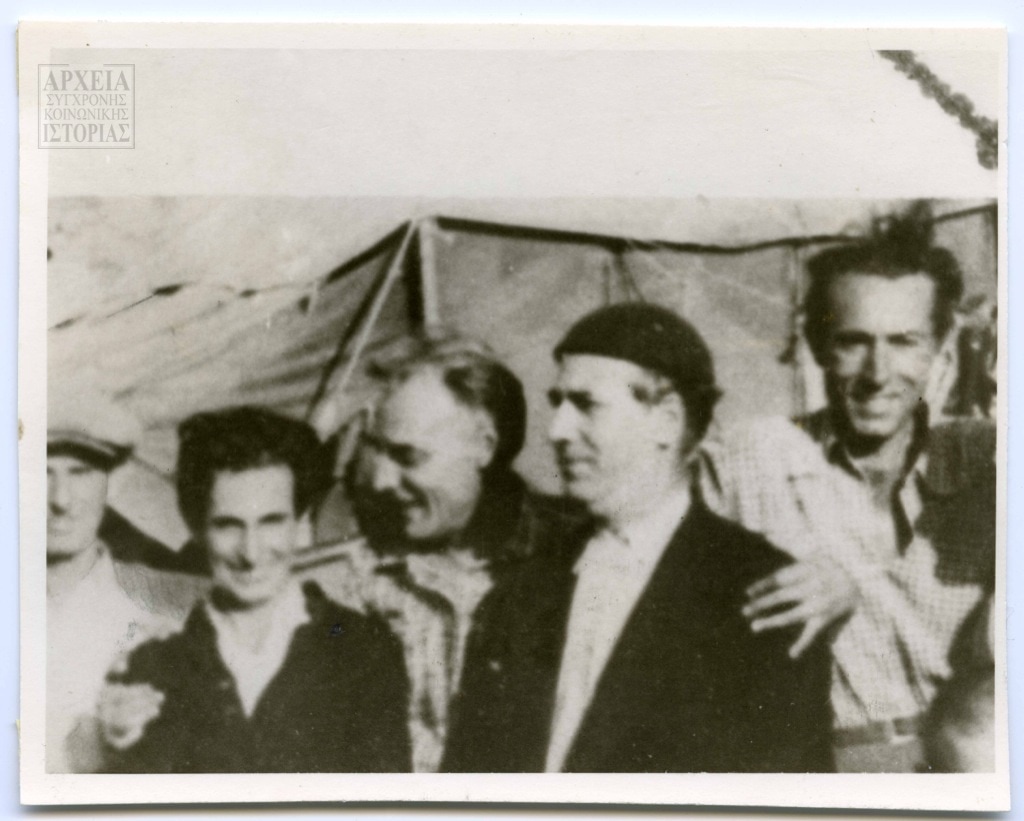
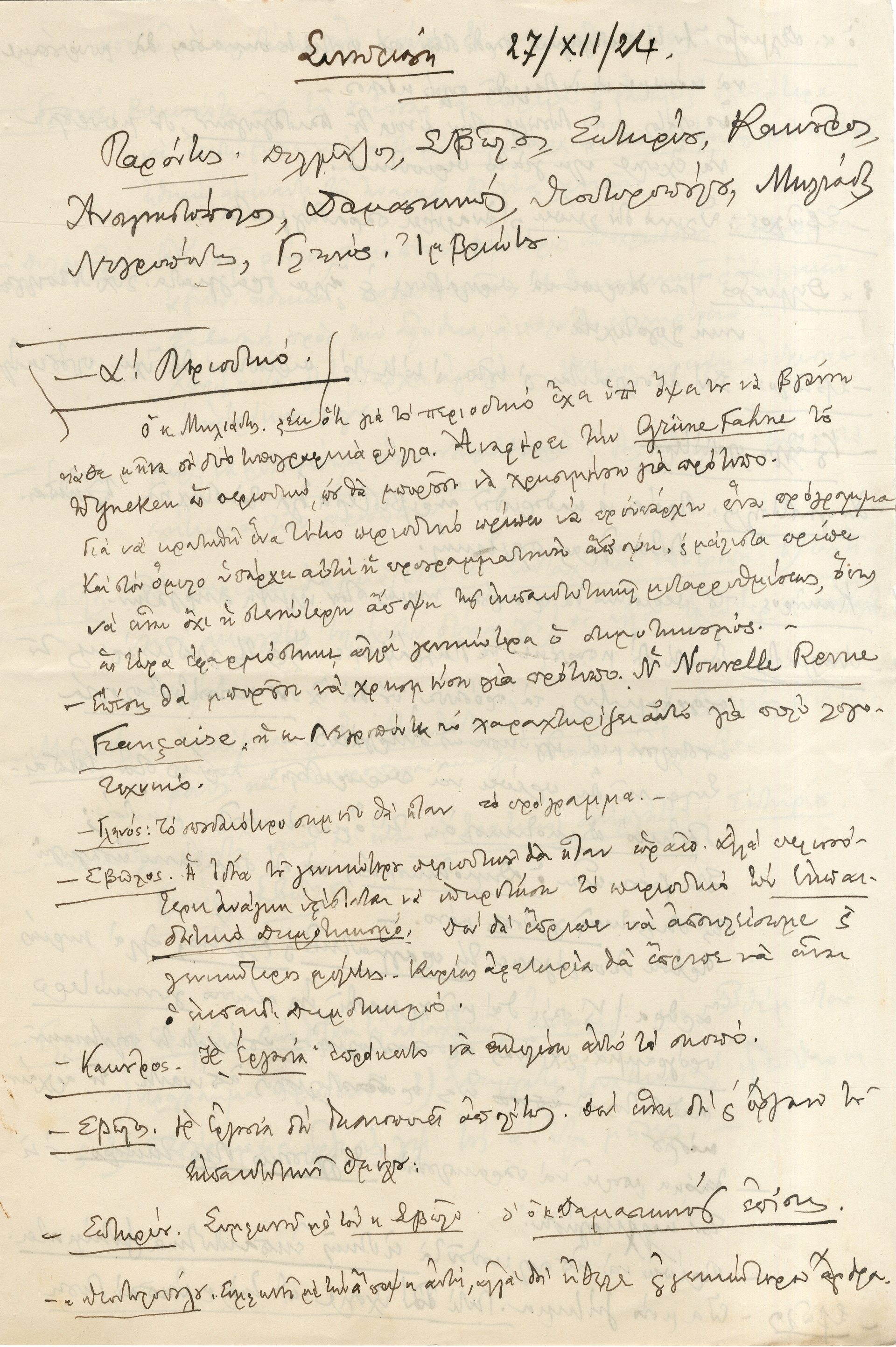
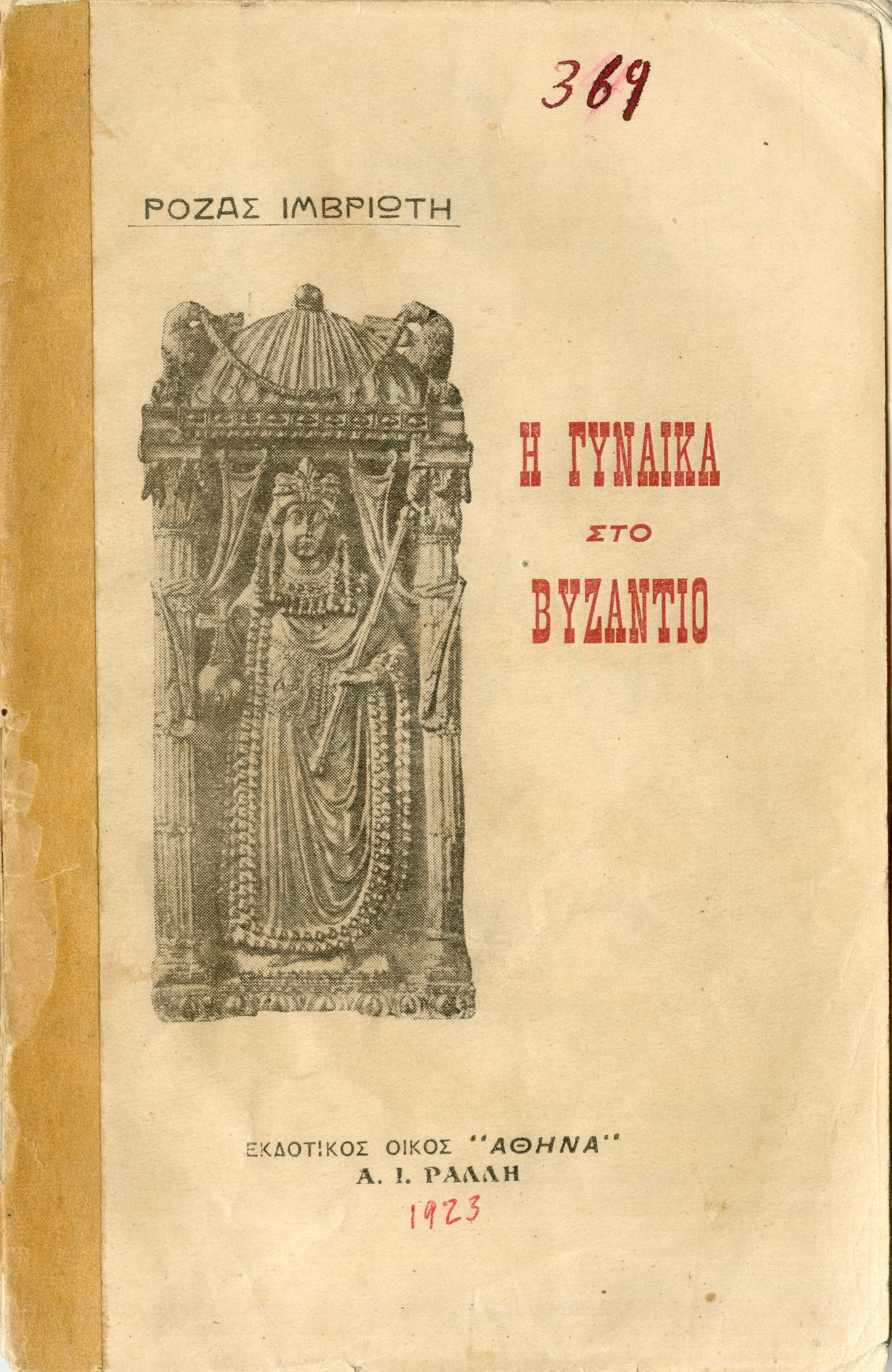
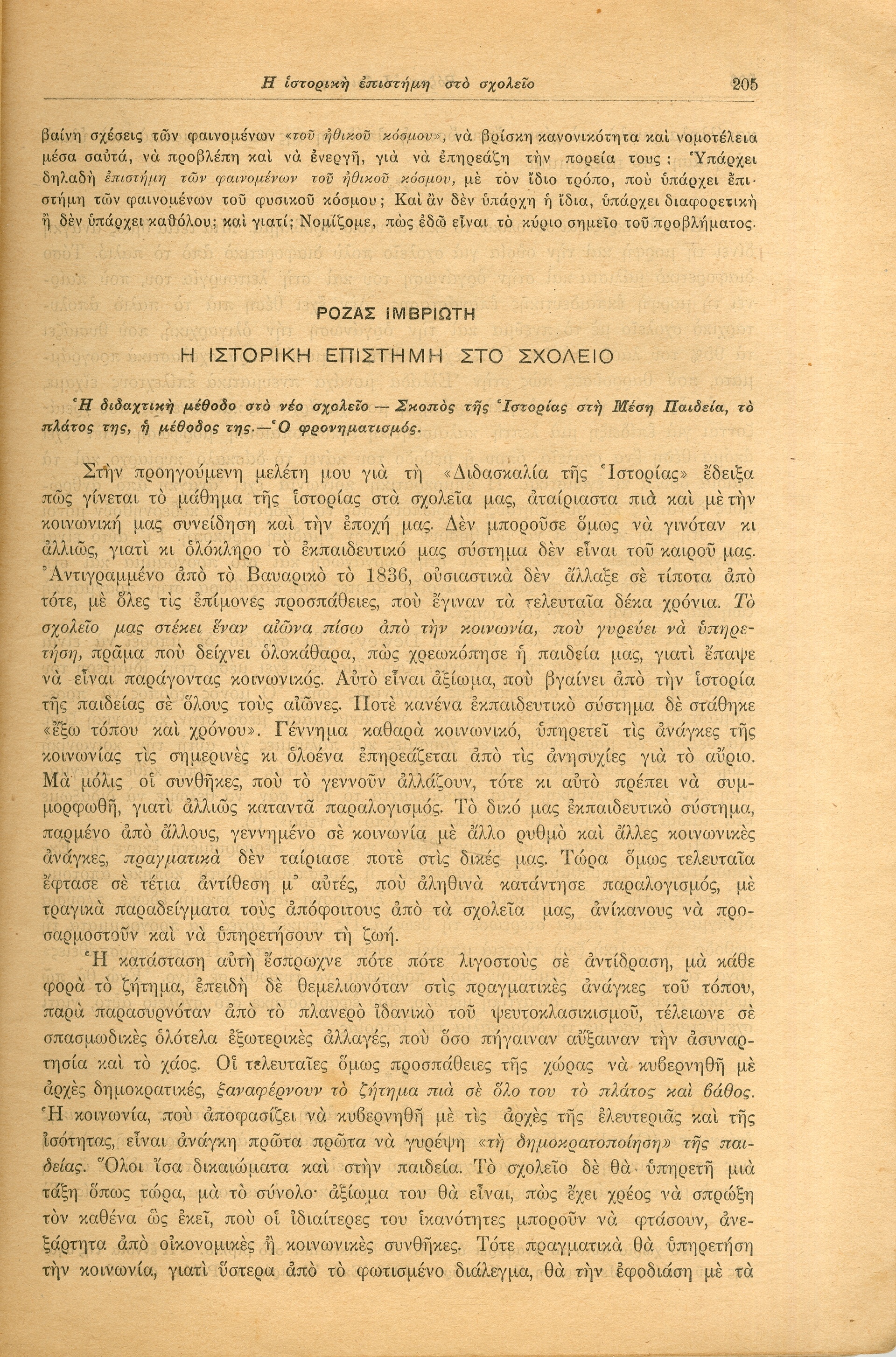
![Snapshot of the activities of the pupils of the Special School in Athens [1937-1940], the first school for children with mental disabilities founded in Greece under the organization and direction of Rosa Imvrioti (Website of the](https://aski.gr/wire/wp-content/uploads/2024/02/ASKI_Imvrioti_09.jpg)
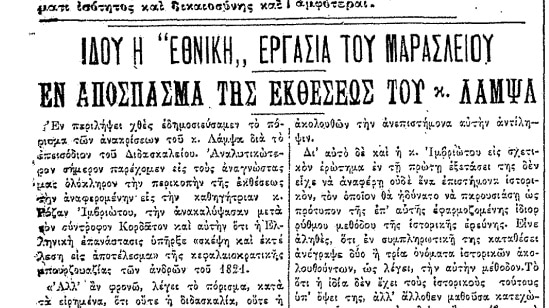
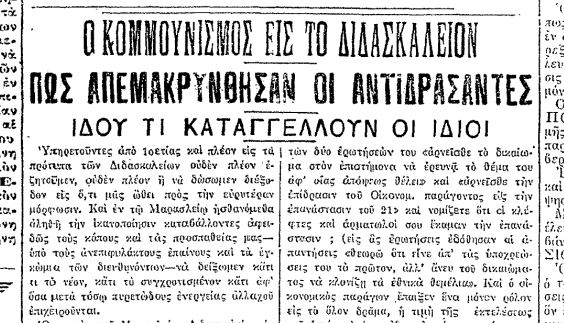
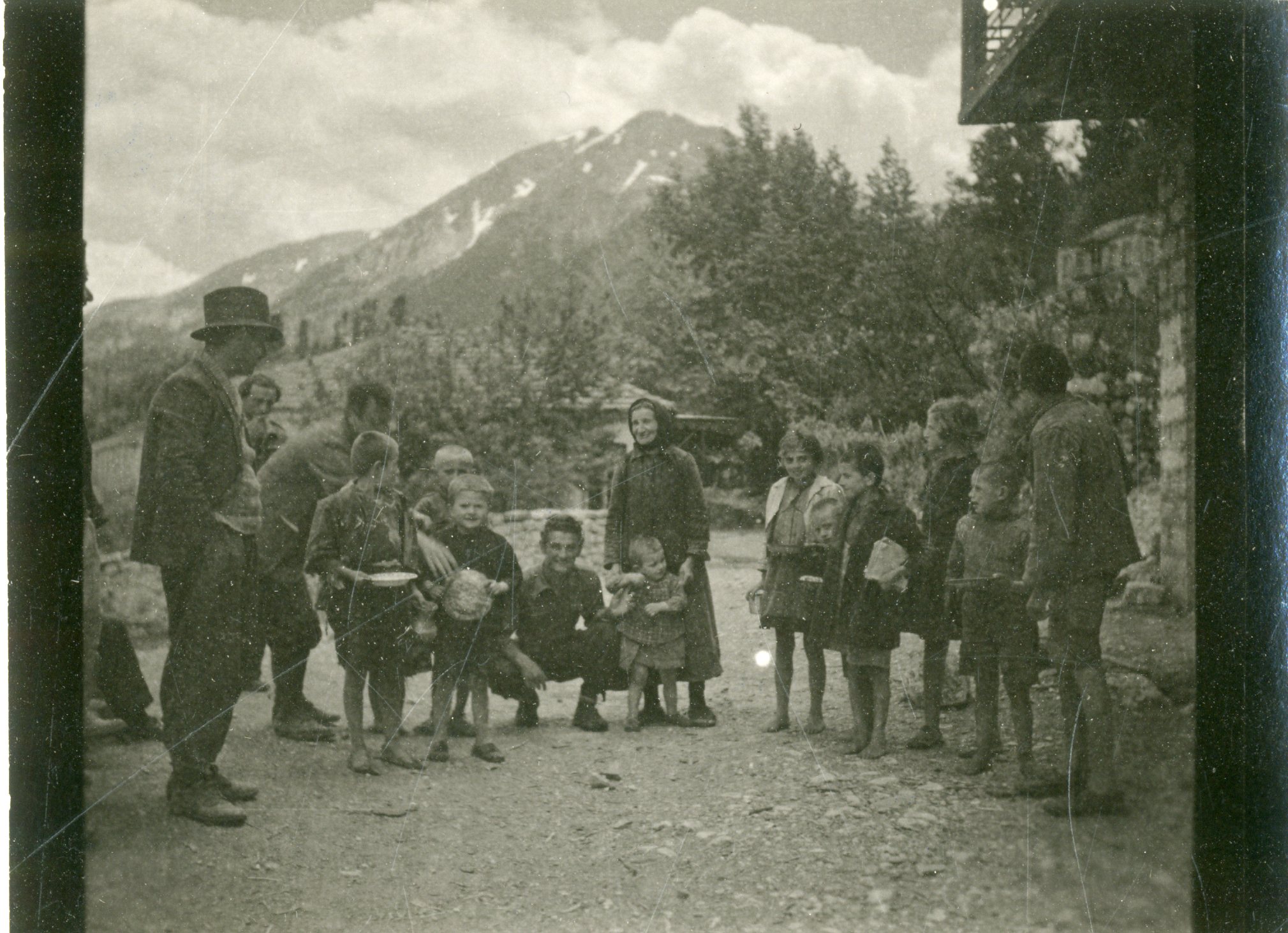
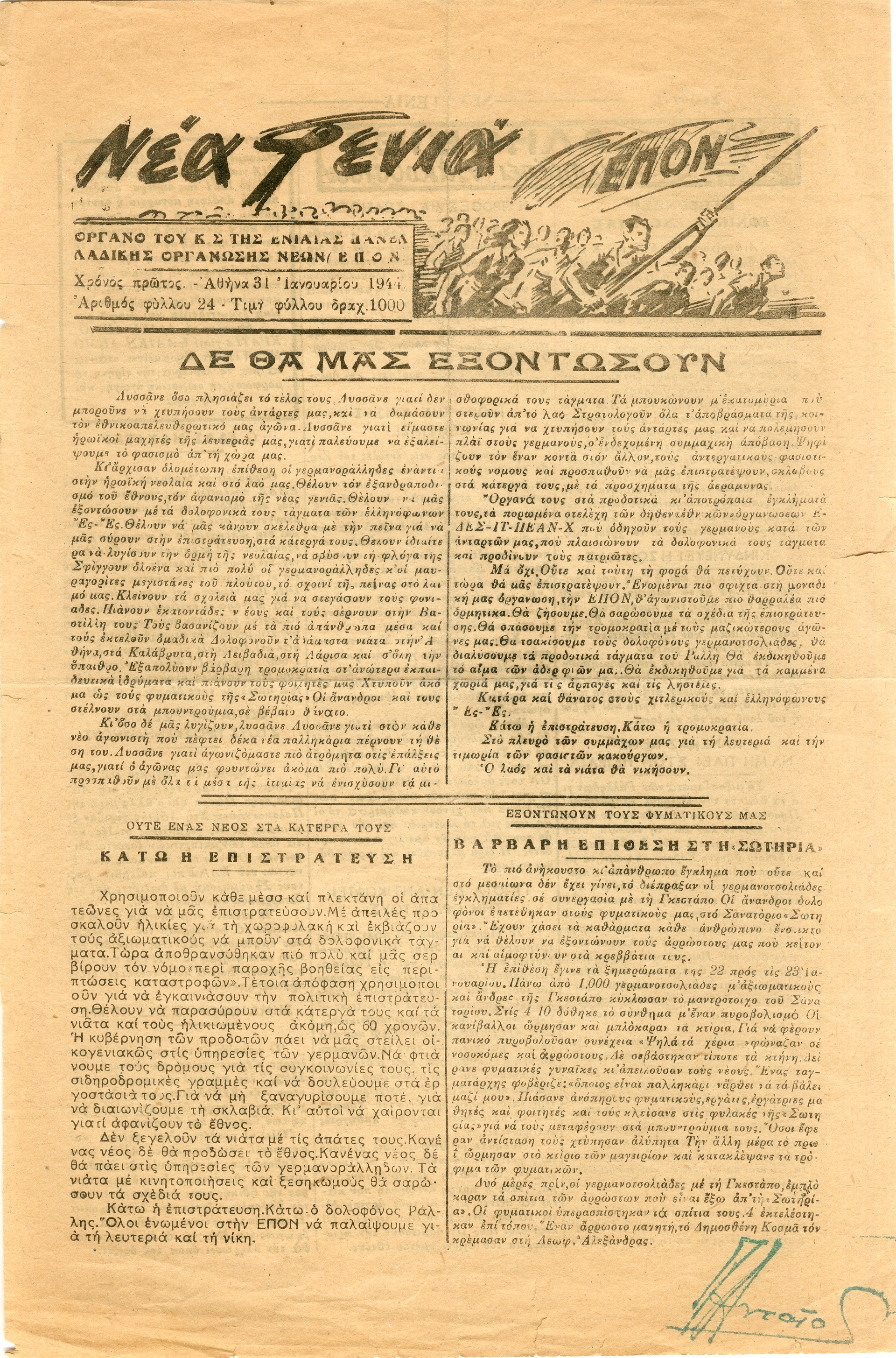
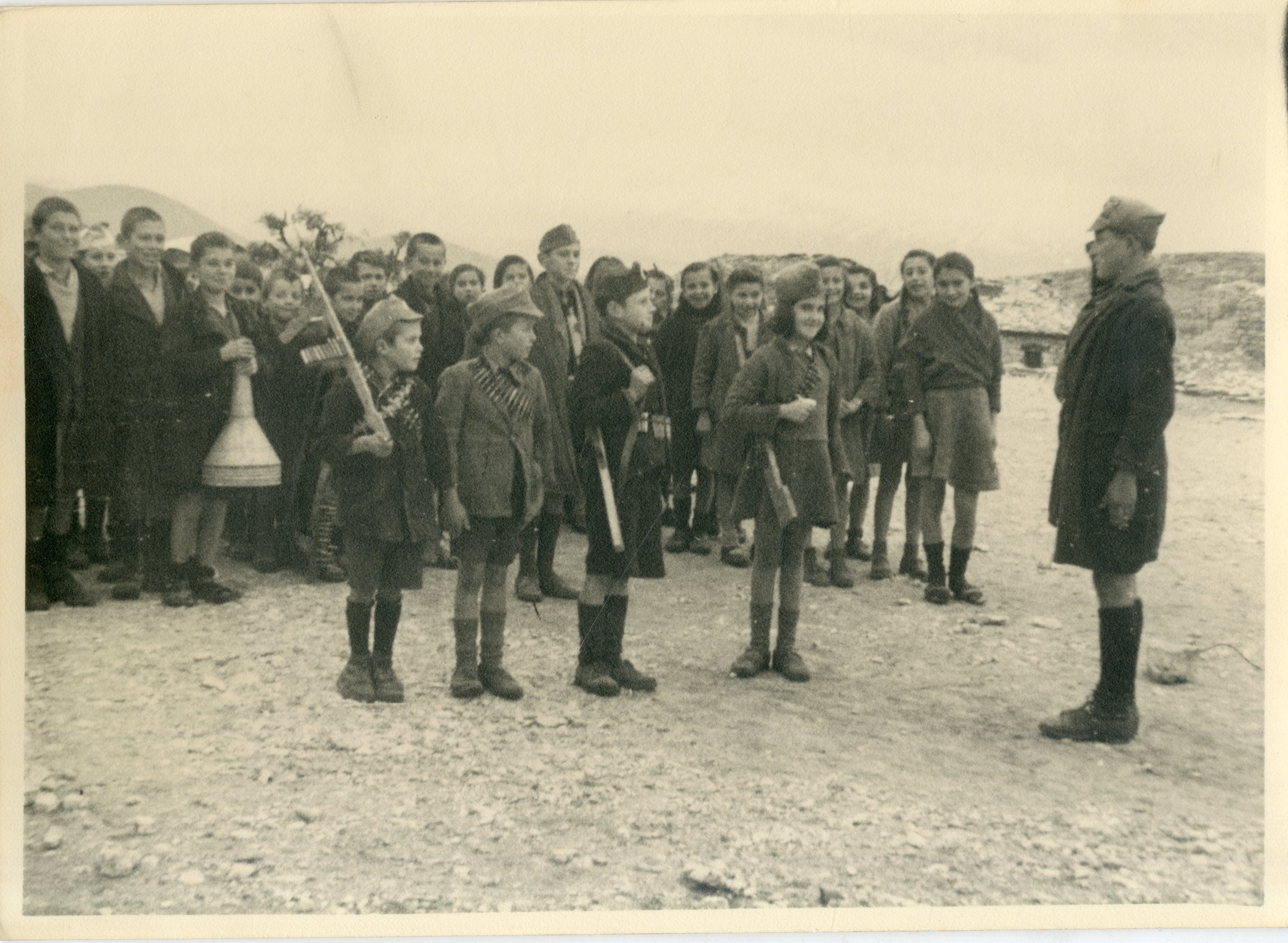
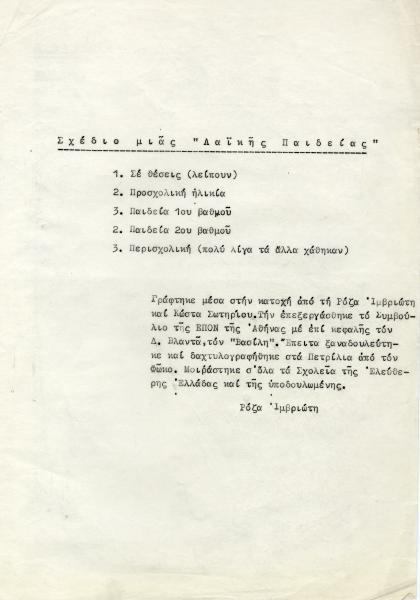
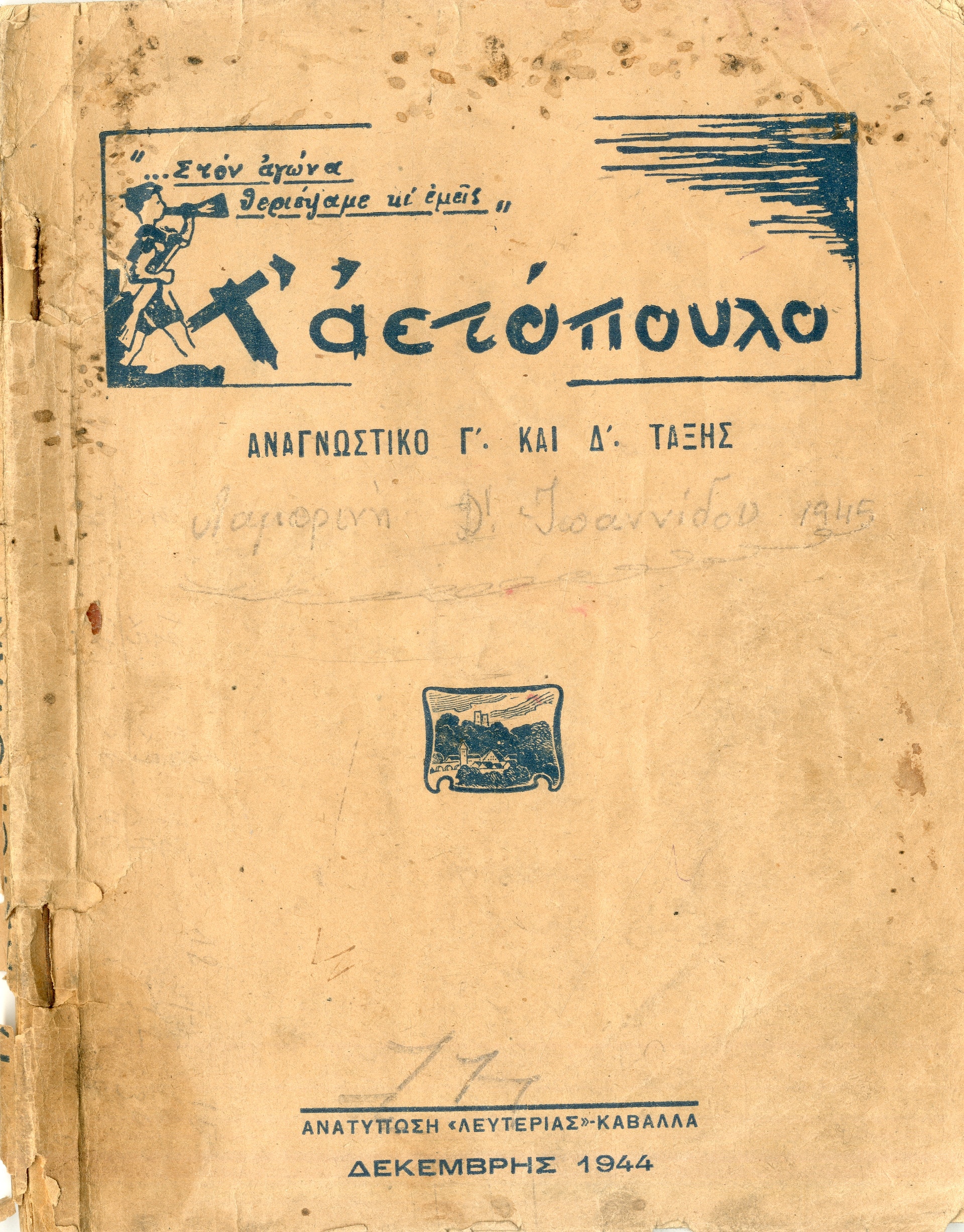
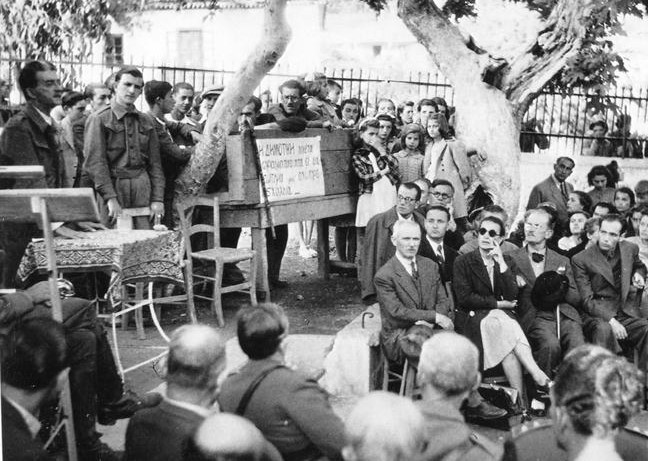
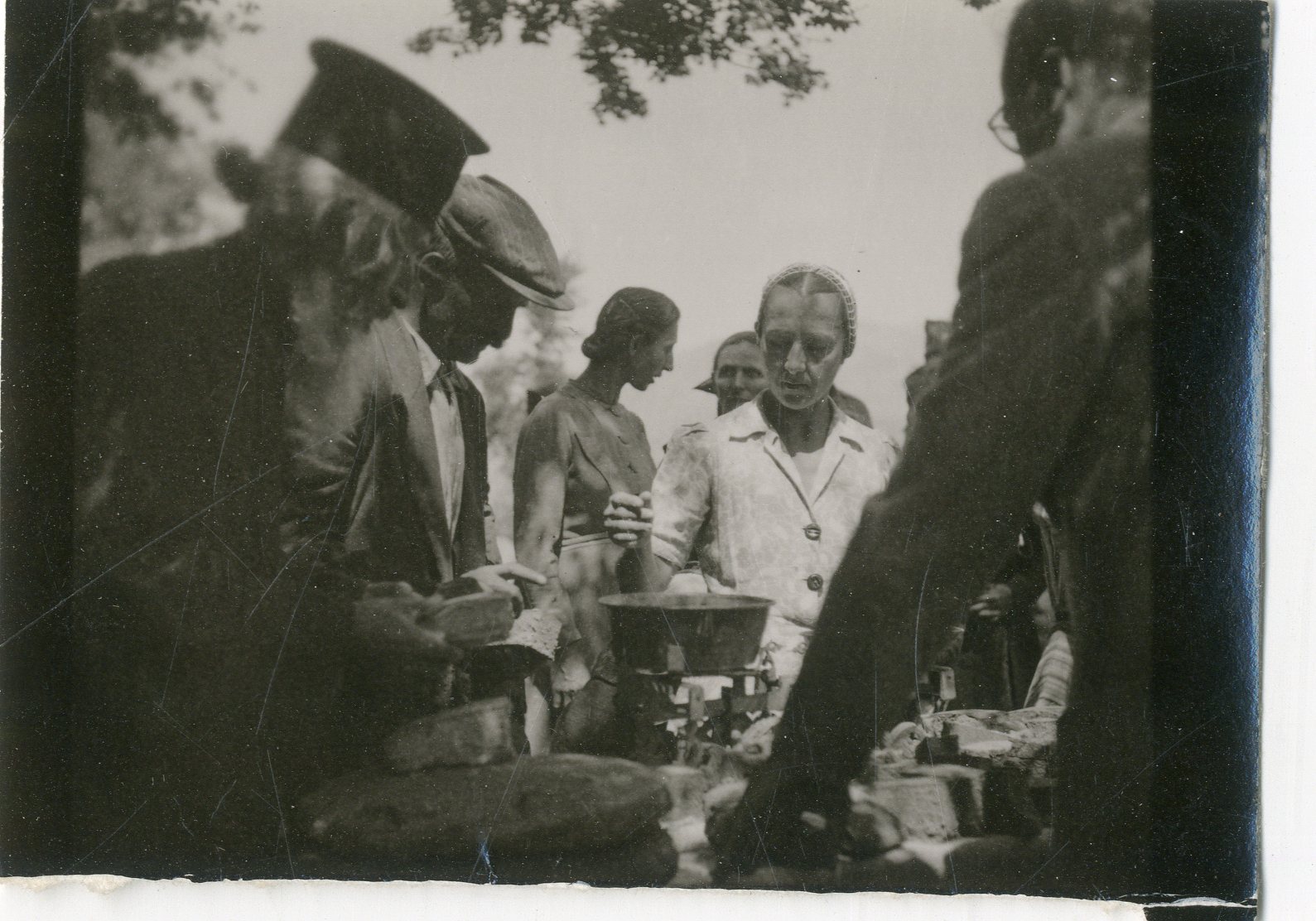
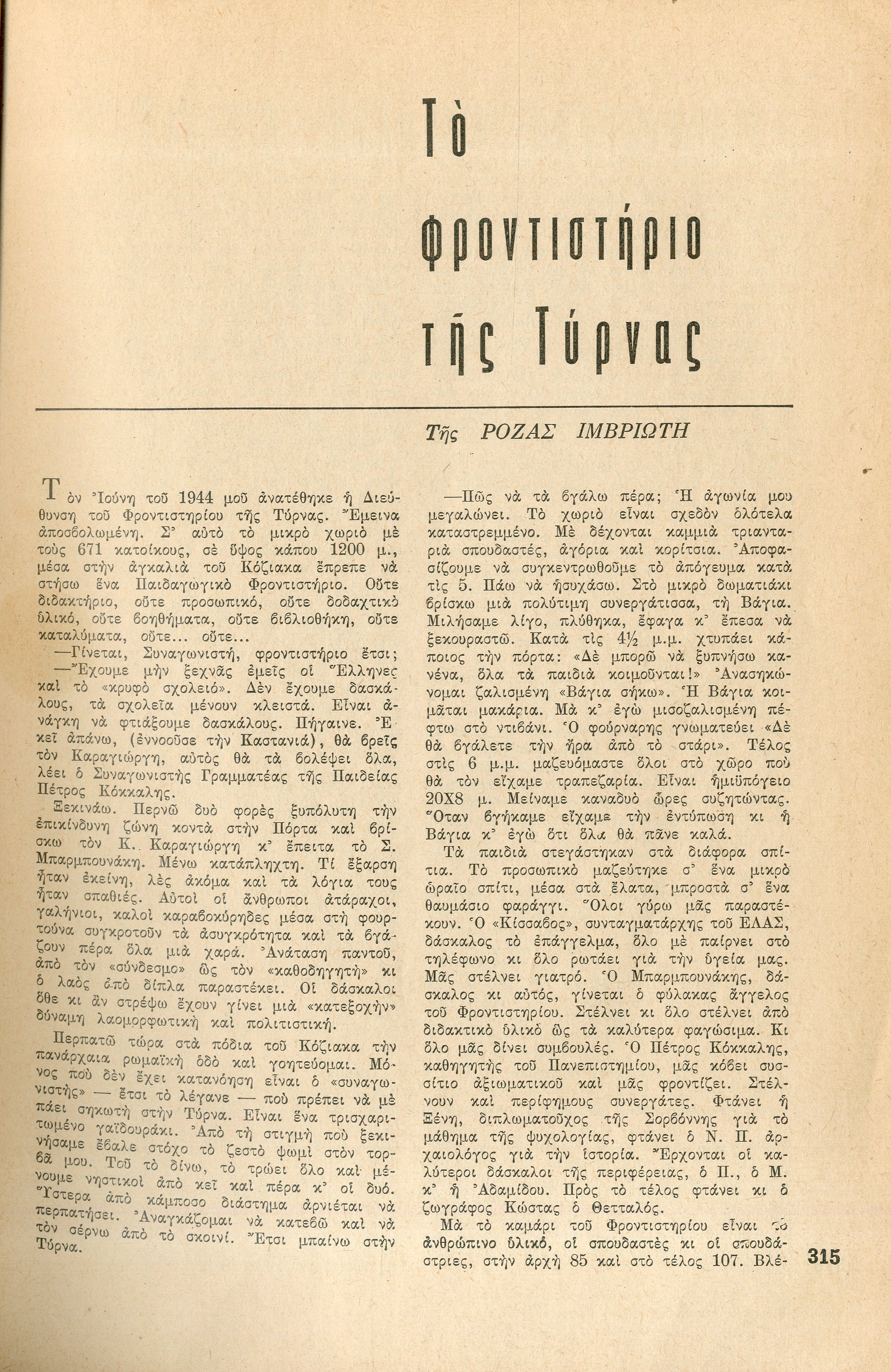
![The educator and member of the Resistance Rosa Imvrioti next to EAM member Kostas Karagiorgis during the period after the liberation of Greece [November 1944] (M. Karagiorgis, Waiting for peace, ASKI Library)](https://aski.gr/wire/wp-content/uploads/2024/02/ASKI_Imvrioti_18.jpg)
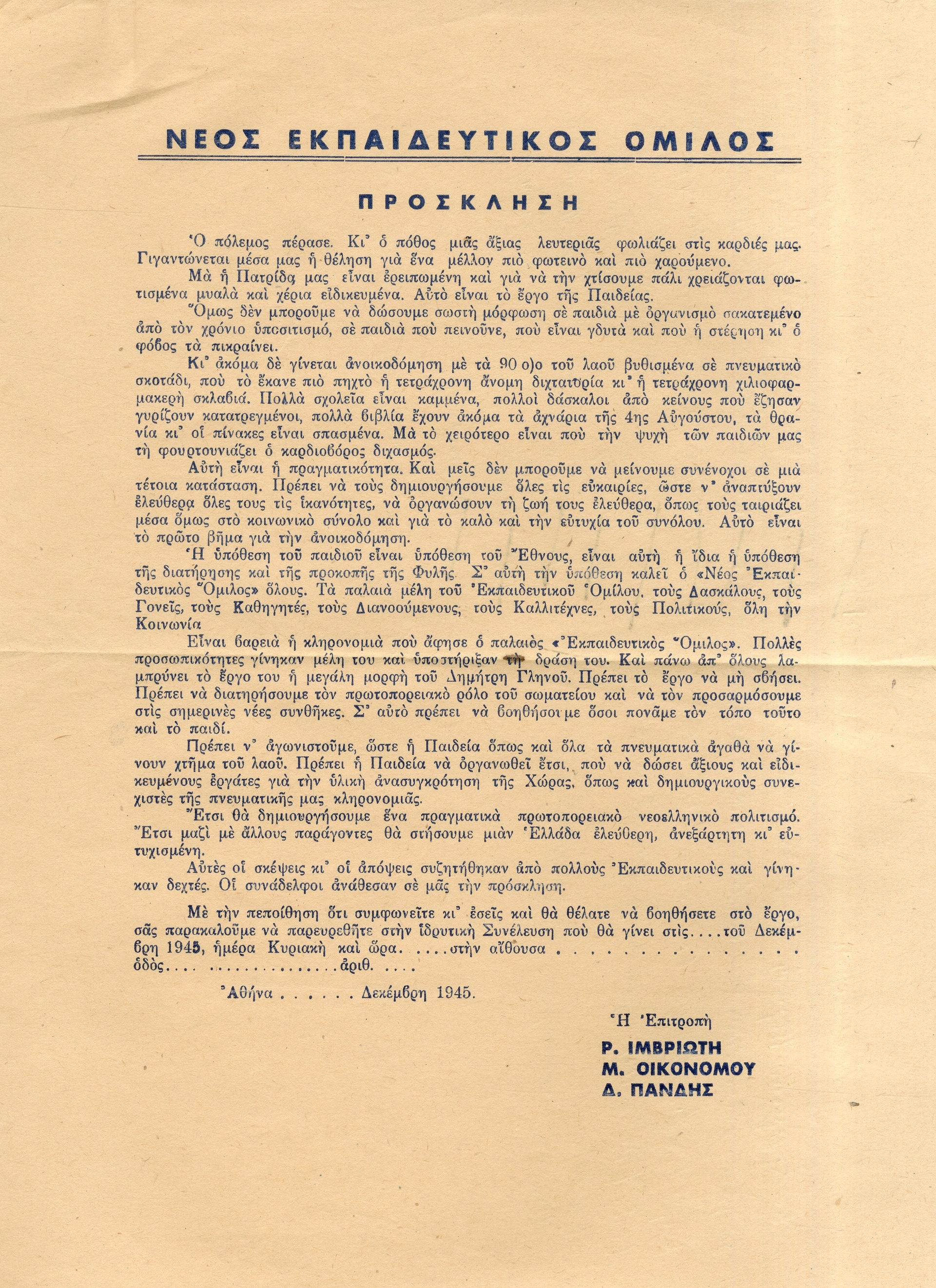
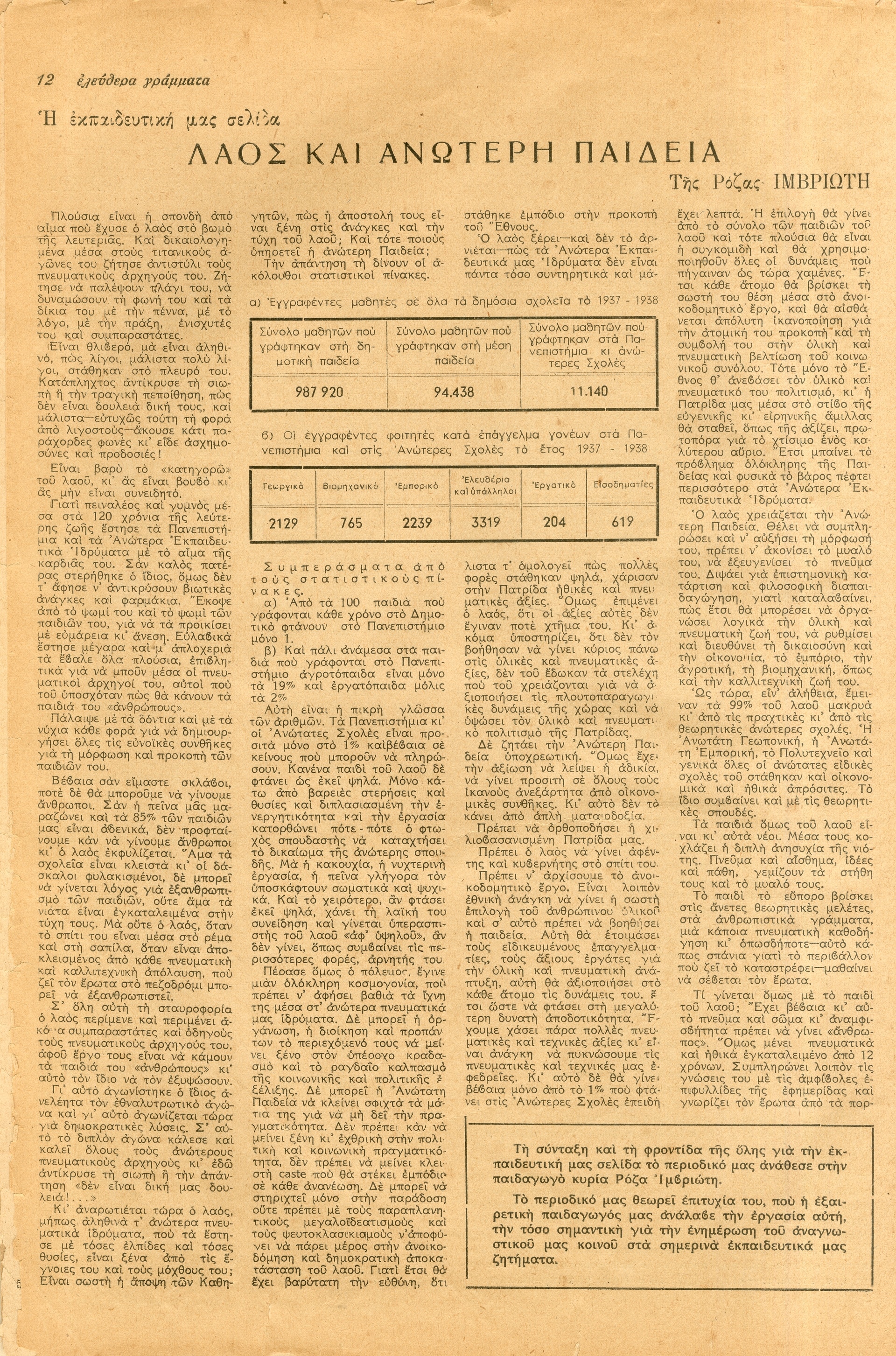

![Women in exile camp, Trikeri island [1949 - 1950]. Rosa Imvrioti (second from the bottom right) photographed with her fellow exiles in front of a tent where they were staying. (ASKI, Photographic Archive of Nikos Margaris)](https://aski.gr/wire/wp-content/uploads/2024/02/ASKI_Imvrioti_23.jpg)
![Women in exile camp, Trikeri island [1949 - 1951]. Snapshot of water transfer and washing clothes. The island had no infrastructure to accommodate a large number of exiled Greek women. (ASKI, Photographic Archive of Nikos Margaris)](https://aski.gr/wire/wp-content/uploads/2024/02/ASKI_Imvrioti_24.jpg)
![Greece, Trikeri [1949-1951]. Young and older women study in an outdoor area of the detention camp. The training program organized by R. Imvrioti helped many exiled women, especially the illiterate ones (ASKI, Photographic Archive of Nikos Margaris)](https://aski.gr/wire/wp-content/uploads/2024/02/ASKI_Imvrioti_25.jpg)
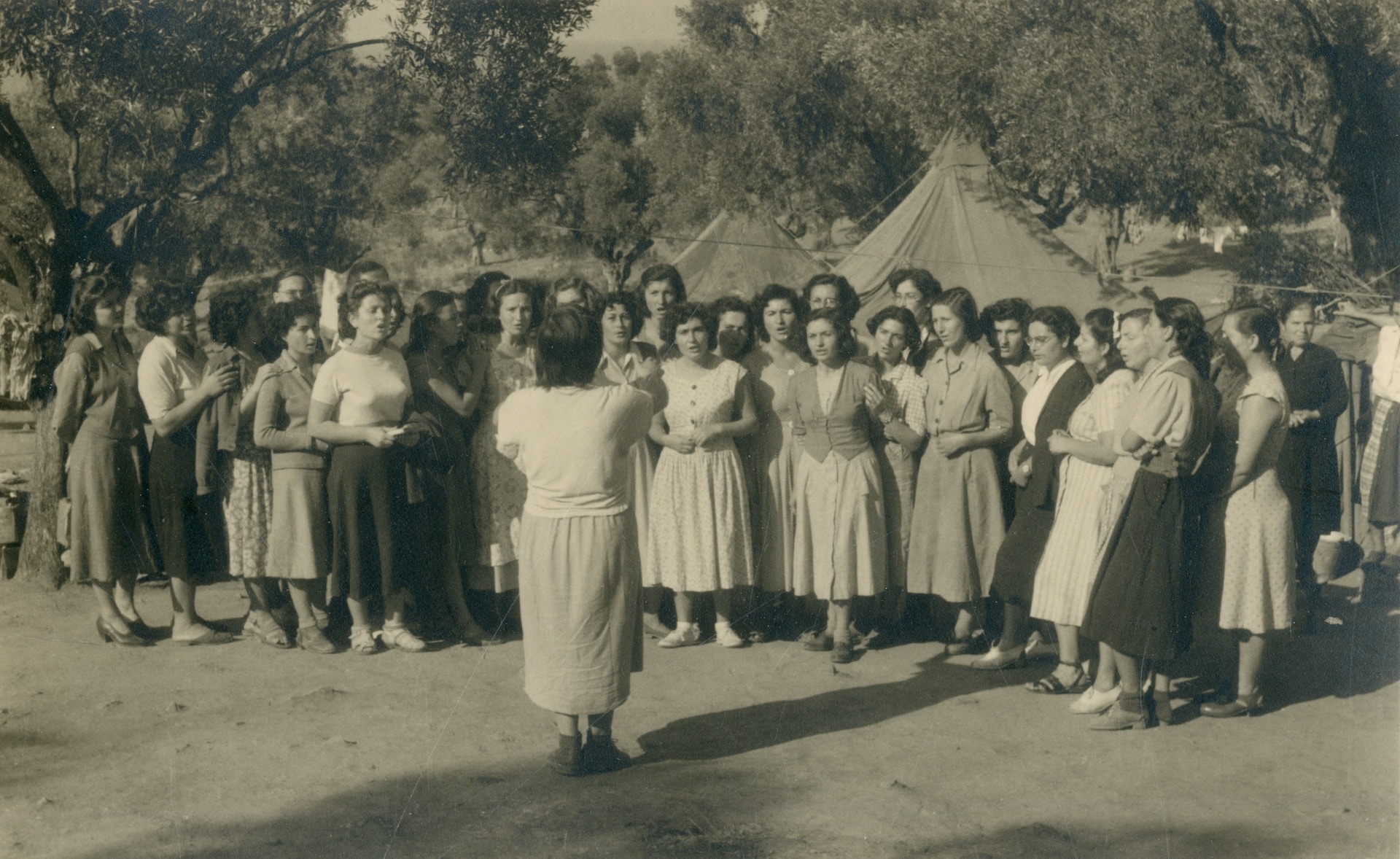
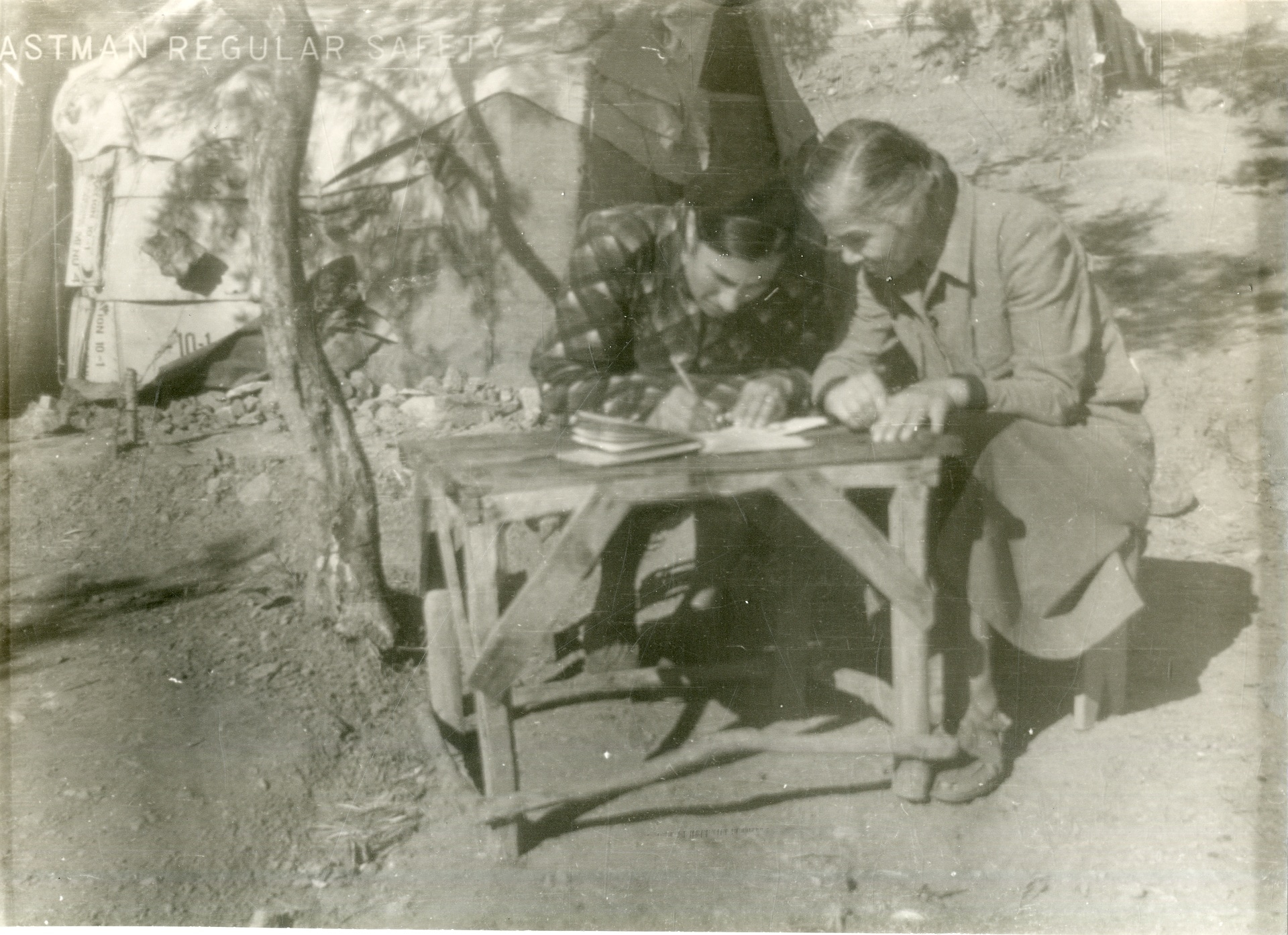
![One of the few surviving photographs of women prisoners in the Larisa camp (central Greece) [1949-1950]. Rosa Imvrioti suffered many tortures during her detention in that camp (ASKI, Photographic Archive of Nikos Margaris)](https://aski.gr/wire/wp-content/uploads/2024/02/ASKI_Imvrioti_28.jpg)


